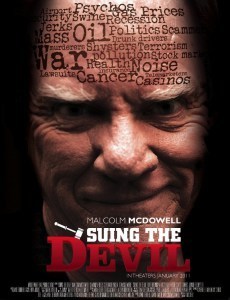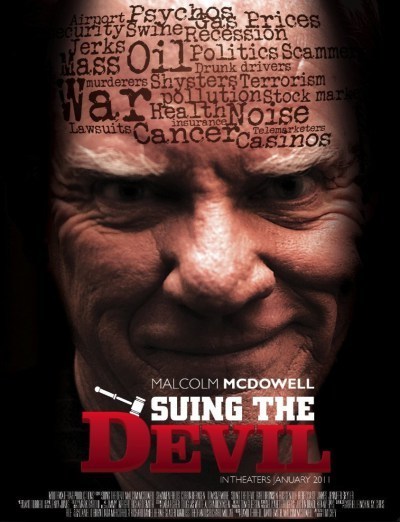Nate Fleming's Blog, page 28
April 7, 2015
Day 23 ��� 40 Days (and Nights) of Christian Media
Day 23. I’ve come to a strange place in this process. �� All of my feeds are churning out Christian suggestions, thanks to those wonderful little cookie things. ��So, theoretically, my temptation to visit secular sites should be at a minimum. ��But that’s not the case. ��Every day I want to go check out the secular news, information, and entertainment websites that I enjoyed before starting this ridiculous challenge.
I’ve come to a strange place in this process. �� All of my feeds are churning out Christian suggestions, thanks to those wonderful little cookie things. ��So, theoretically, my temptation to visit secular sites should be at a minimum. ��But that’s not the case. ��Every day I want to go check out the secular news, information, and entertainment websites that I enjoyed before starting this ridiculous challenge.
There’s a new Avengers trailer, but I can’t watch it.
There are news outlets other than the ones obsessed about cakes in Indiana, but I can’t read them.
There are movie soundtracks to be listened to while I try to write, but I can’t listen to them.
You have to remember, I’m not just a Christian, I’m also a Christian with a pop culture addiction. ��And I’ve been��pretty underwhelmed by Christian media.
But there’s been one big exception��– the world of��audio.
Over the past 23 days, I’ve discovered some really wonderful, creative, expressive, Christian-made music. I’ve found��musicians who claim Christ and who are doing some amazing things, some things that are worthy of hearing by folks in and out of the Christian subculture. ��In fact, it seems like Christian musicians are given more leeway than other arenas of media, but that might just be my own interpretations of events.
Here’s the way I see it. ��Christian musicians have a leg up when it comes to other arenas of Christian media, because the greater church doesn’t care about the genre. ��You can play Australian Death Metal but still be a Christian band. ��Christian gangta rap? ��Why not? ��Christian punk? ��Sure. ��Christian psychedelic? ��Rock on!
But what about – for example – Christian film? ��Do we give our Christian filmmakers the same leeway? ��Of course not! ��We demand that Christian-made films fall into a certain category. ��They have to be family-friendly, they have to have the “Christian money shot” conversion scene, they have to have the one-dimensional anti-Christian character, etc.
You don’t hear much about Christian-made films that don’t fit the mold. ��And this, my friends, is a big mistake. ��We need to be making Christian-made films that break all the barriers! ��We need to do Christian-made sci-fi (please, with big budgets), dramas, westerns, comedies, historical epics, indy dramas, etc.
Equal time for Christian media, y’all. �� And you non-creative Christians need to get out there and start putting your money where your mouth is. ��Find a Christian creative that you like and start supporting their work. ��Give to their indie-gogo profects. ��Buy their music and give it to a friend. ��Read their books and buy a copy for your library.
And review. ��Always review, no matter the media.
—
Also, to update from my last post, the “Bake For Them Two” post that I mentioned created a minor firestorm on my Facebook page that ended with me being unfriended by an old college acquaintance who would fall into the strict conservative political-Christian category. ��I don’t think of myself as terribly progressive or liberal, but interacting with this person certainly made me feel so.
Since when does��identifying oneself with the radical love for Jesus towards the disenfranchised and the outcasts of society makes one a progressive or liberal? ��I’m sorry, my strictly conservative political-Christian former Facebook friend, but I don’t give you the power to label me in such a way.

April 6, 2015
Day 22 �����40 Days (and Nights) of Christian Filmmaking
 I had a couple of interesting things happen to me today with regards to Christian media.
I had a couple of interesting things happen to me today with regards to Christian media.
First, I was blocked on Tim Chey’s David and Goliath Facebook page for asking them to provide a link to substantiate a Facebook post that bragged they were the #2 new release film for the weekend in the theaters in which they were released, only to find out that there were only two new release films in most of those theaters. ��I wrote about it here.
Not a great way to reassure me about the state of Christian media, Mr. Chey.
Second, when I woke up this morning, brewed up my cup of coffee, and cranked up the ol’ Macbook Pro, I found a story waiting for me on Facebook.
This article hit me pretty hard, as I’ve been giving a lot of thought to this issue of late. ��Being outside of the U.S., it’s not as in-my-face, but having spent the last twenty-two days living on Christian news websites, I know that it is in the face of many.
 The article really spoke to me, not about my rights as an American, but my responsibilities as a follower of Jesus Christ. ��Regardless of my stance on the issue of the legality or legitimacy of homosexual marriage, I am called to love people in the name of Jesus, right? ��And Jesus was infamous for not sticking with the established religious standards, but breaking the rules in an attempt to draw people to himself. ��What would Jesus do, indeed?
The article really spoke to me, not about my rights as an American, but my responsibilities as a follower of Jesus Christ. ��Regardless of my stance on the issue of the legality or legitimacy of homosexual marriage, I am called to love people in the name of Jesus, right? ��And Jesus was infamous for not sticking with the established religious standards, but breaking the rules in an attempt to draw people to himself. ��What would Jesus do, indeed?
I wrote about it on Facebook, and found the article being supported by some and hated by others, which was predictable. ��It’s amazing how hard it is to really follow Jesus.
Day 22 down.

April 5, 2015
Spin Marketing Christian-made Films
According to their website, on Easter��weekend, Tim Chey’s David and Goliath premiered in 31 cities across the fruited plain. ��The film, which reportedly cost $50 million to make, made just over $150,000. ��But on Monday morning (China time), I saw that the David and Goliath Facebook page��had posted the following update.
My last check indicated that this post has been liked 1,007 times, and shared 126 times.
The only problem? ��The D&G FB people are��lauding their weekend by saying they were “The #2 New Release Movie” for the weekend in the theaters in which they premiered. But as I looked through the listings of those��theaters, as far as I could tell, there were only two new releases this weekend. David and��Goliath, and Fast and Furious 7.
So, in other words, they’re promoting the film by saying that it came in last for new release films, but making it sound like a big accomplishment.
Got to love spin in marketing!
By the way, I’ve only found one review of David and Goliath so far, and here it is.
***update***
Earlier this morning, I wrote a comment on the David and Goliath Facebook page requesting information about their stats. ��I just went back to see if the D&G people had replied, and found my comment deleted, and that I was blocked from making further comments on their page. ��Interesting…

April 4, 2015
Day 20 ��� The 40 Days (and Nights) of Christian Media Challenge
 I stand at the midway point of the challenge, with as much lying behind me as lies ahead.�� The ���donut of misery���, as they say.�� And yet, I���ve settled into a comfortable routine, enjoying certain aspects of the process, and disliking others.��
I stand at the midway point of the challenge, with as much lying behind me as lies ahead.�� The ���donut of misery���, as they say.�� And yet, I���ve settled into a comfortable routine, enjoying certain aspects of the process, and disliking others.��
The Pleasures
I’ve enjoyed finding some wonderful Christian-produced media, much that I probably wouldn’t have discovered without the challenge.��
Reel World Theology Podcast��– Entertainment is not mindless
More Than One Lesson Podcast��– Movie talk for the discerning Christian (which I actually discovered before the challenge, but I’ve been enjoying listening to the back episodes)
Say Goodnight Kevin – youtube channel (watch the reviews for Fireproof and Left Behind)
 The Bored-Again Christian Podcast��– Christian music for people who are tired of Christian music
The Bored-Again Christian Podcast��– Christian music for people who are tired of Christian music
Skye Jethani’s daily devotions
Rocket Pack Jack – a fun short film for kids
Christiancinema.com – a great source of films
World Magazine – a news magazine I used to enjoy in print form, but have been glad to rediscover online.
Sufjan Stevens – an extremely innovative musician with a��Jesus��underpinning to his music.
And, as a person who really disliked God’s Not Dead, I’ve been pleasantly surprised to��find��some��Pure Flix movies that I’ve enjoyed. ��Not to sound snarky, but this has been a big surprise to me, but again – a pleasant one.
Finally, I’m also excited about the growing list of things I want to read/listen to/watch when the challenge is complete.�� It will be nice to have choice back again.
The Challenges
At the same time, I have not enjoyed some of the Christian-produced things I’ve encountered, although I have found a growing appreciation for the Christians who are creating media, regardless of what I think of the finished product.�� Producing media��is extremely difficult, and for a person to take an idea to the finish line is admirable in any situation. ��
I just wish I could affect change on much of that finished product…
Speaking of choice, one thing I’ve really disliked is not having any real choices of��credible news sources. ��Typically, when not doing this challenge, I like my sources to be varied, because I think that is how I can come closest to getting the true story. ��Limiting��my news to only Christian media outlets has severely limited my ability to get an unbiased perspective on world events.
 Exodus: Gods and Kings
�����Thimblerig’s Mini-review
Exodus: Gods and Kings
�����Thimblerig’s Mini-review
Last night my family sat down to watch Exodus: Gods and Kings. ��It seemed appropriate to watch a film about The Passover on Good Friday, and I was all prepared to not like it because of the way so many Christians responded negatively to the film.
But I really, really liked it.
People said the film was boring, but I was completely engaged from start to finish. ��I often fall asleep watching movies at night (yeah, I’m that guy), but I stayed awake to the very end.
People didn’t like the film’s representation of God as an 11 year old boy. ��I was intrigued by the filmmaker’s choice to do this, and it made me pay attention in a way I might not have if God had simply been a disembodied voice. ��By the way, did people get upset that Val Kilmer, the voice of Moses in Prince of Egypt, also provided the disembodied voice of God?
People didn’t like the naturalistic portrayal of the plagues. ��This criticism makes me want to pull my beard out. ��The plagues, while natural in execution, were obviously supernatural in origin. ��That was the whole point of the advisor to Ramses who tried to explain them away as natural, but who ultimately wound up swinging in the gallows, because there was no way they were natural!
Of course, if people have a genuine conviction to not watch a film like Exodus: Gods and Kings, then they should not watch the film. ��I do, however, think that many of the critiques I read were simply incorrect.
Here are a couple of good reads about the Christian response to Exodus.
Movieguide – I was very impressed by the five suggestions that the Movieguide people made. ��Make sure to read the comments below the article, by the way.
Karen Marya – I’ve linked this article before, but it’s so good I want to link it again. ��Karen is a part of the Sacred Arts Revolution, by the way.
Chip Hardy (Ph.D., University of Chicago), Assistant Professor of Old Testament and Semitic Languages at Southeastern��– a fantastic perspective from an expert in the subject matter. �� Thanks to Wesley at the Sacred Arts Revolution for the heads up on this.
I’d like to conclude my 20 day wrap-up with this little nugget that occurred to me after watching Exodus: Gods and Kings.
Christian filmmaking apologists will often defend the low quality of Christian-made film��by��saying��that God uses the weak things of the world to shame the wise, and that God can even use a poorly made Christian film to impact the world. ��And then, in the same breath, they lambast non-Christian-made Bible films as being heretical and unbiblical, saying that Christians should not see such films.
Isn’t it interesting that these Christians��defend the Christian-made material so strongly, but often don’t extend this same courtesy to non-Christian-made films like Noah and Exodus: Gods and Kings?
Can’t God use non-Christian-made films to bring people to Himself, and shouldn’t we (as Christians) look for ways to be a part of that happening?
—
A little bonus cultural tidbit for your reading pleasure.
 We’re celebrating the Qingming Festival in China this weekend. ��It’s a lunar-based festival where people traditionally go to the tombs of their ancestors and pay respect to the dead.
We’re celebrating the Qingming Festival in China this weekend. ��It’s a lunar-based festival where people traditionally go to the tombs of their ancestors and pay respect to the dead.
Family members clear weeds from around the tomb and add fresh soil to show care for the dead. ��They also bring the dead person’s favorite food and wine, and burn money (or paper resembling money) so that the dead will have plenty.
This year, it just so happens that the Qingming Festival falls on the same weekend as Easter, when the women went to the tomb to take care of the dead and found that the tomb was empty.
I think that’s pretty cool.

April 1, 2015
Suing the Devil ��� Thimblerig’s Review ��� Part 2
For some background, and to see part one of this review, click here.
In anticipation of Tim Chey’s upcoming biblically correct film,��David and Goliath, I went in search of a film also made by��the filmmaker, hoping to get a sense of his style and personality. ��That search led me to Suing the Devil, starring Malcolm McDowell as old Scratch himself.
 “In the film, Luke O���Brien (Bart Bronsen), a washed-up janitor turned night law student, decides to sue Satan (Malcolm McDowell) for $8 trillion dollars. On the last day before Luke ���les a default judgment, Satan appears to defend himself. On Satan���s legal team are 10 of the country���s best trial lawyers (Dennis Cole, Jeff Gannon, Annie Lee). The entire world watches Legal TV (Corbin Bernsen, Tom Sizemore, Rebecca St. James) to see who will win the Trial of the Century.”
“In the film, Luke O���Brien (Bart Bronsen), a washed-up janitor turned night law student, decides to sue Satan (Malcolm McDowell) for $8 trillion dollars. On the last day before Luke ���les a default judgment, Satan appears to defend himself. On Satan���s legal team are 10 of the country���s best trial lawyers (Dennis Cole, Jeff Gannon, Annie Lee). The entire world watches Legal TV (Corbin Bernsen, Tom Sizemore, Rebecca St. James) to see who will win the Trial of the Century.”
As I usually do with my film reviews, I will start with what I liked about Suing the Devil, then where I think the filmmakers could have improved, and then I’ll rate the movie according to the Thimblerig Scale, which you can read about here.
But before I do that, here’s the trailer.
What I liked:
1) ��The cinematography
I’m happy that this is becoming a fairly constant positive when it comes to my reviews of Christian made films. ��Suing the Devil looked quite good, with some interesting camera work, and it was obvious that the filmmakers intended for the film to have a feature film��quality feel to it. ��For the most part, they succeeded.
2) ��The humor
 The��film often��had a lightness that the subject matter demanded, keeping��it from falling into a completely dark place. ��Most of the humor was found in the responses of the Legal TV broadcast,��with��Corbin Bernsen, Rebecca St. James, and Tom Sizemore reacting to the events of the courtroom, but Satan was given some pretty good lines, too – such as his encounter with the zealous Kiss fan in the trailer.
The��film often��had a lightness that the subject matter demanded, keeping��it from falling into a completely dark place. ��Most of the humor was found in the responses of the Legal TV broadcast,��with��Corbin Bernsen, Rebecca St. James, and Tom Sizemore reacting to the events of the courtroom, but Satan was given some pretty good lines, too – such as his encounter with the zealous Kiss fan in the trailer.
3) ��The earnestness
I’m slowly coming around to appreciate the earnestness��of��Christian-made films. ��Unfortunately, earnestness alone doesn’t��help make a film a good film, but as a Christian, I can respect a fellow Christian filmmaker wanting to use his or her opportunity on screen to share the faith. ��Suing the Devil, as with most Christian-made films, would have benefited from a��healthy dose of subtlety and artistry to make the film more accessible��for the non-Christian audience, but the sincerity of the filmmakers wanting to share The Message was evident in this film from start to finish.
4) ��Malcolm McDowell
 This movie rose and fell on Malcolm McDowell, and he earned whatever sum of money he was paid. ��He camped it up where it needed to be camped, and he was suitably intimidating��when he needed to intimidate. ��I especially thought the monologue about the creation of noise to be especially poignant.
This movie rose and fell on Malcolm McDowell, and he earned whatever sum of money he was paid. ��He camped it up where it needed to be camped, and he was suitably intimidating��when he needed to intimidate. ��I especially thought the monologue about the creation of noise to be especially poignant.
“You know what I created, do you? ��I created noise! ��And like the dumb idiots you are, you worshipped it! ��Humans love the noise I create. ��Car alarms, motorcycles, leaf blowers, nightclubs, gangsta rap, techno music, everything that creates noise, I invented. ��Noise drowns out any thoughts of God. ��(noise erupts in the courtroom) ��What’s the matter? ��Don’t you love the music of hell?”
I shudder to think how these lines would have been, coming from a lesser actor.
Which brings me to what I didn’t like about Suing the Devil.
1) ��The rest of the actors
I’m sorry to say, but it seems like Mr. Chey spent the bulk of his budget on getting Mr. McDowell, Mr. Bernstein, Ms. St. James, and Mr. Sizemore. ��While a few of Satan’s lawyers were pretty good, most��of the other actors performed on the typical Christian film level, meaning disappointingly.
This actually has me concerned for what we’re going to see from David and Goliath, a film that reportedly has a huge budget of $50 million dollars, but with no known actors in any of the roles. ��In fact, looking through the actors’ IMDB pages, most have few acting credits. ��Unfortunately, Suing the Devil��seems to demonstrate that directing green actors may not be Mr. Chey’s strong suit.
2) ��The script
Warning: this paragraph contains a big spoiler.
As��disappointed��as I was by the acting, my bigger problem with the film was the uneven script, which confused me as to what the filmmakers were trying to accomplish. ��Were they trying to make a goofball comedy?����A courtroom drama?�� A supernatural��horror? ��An inspirational evangelistic film? ��The different styles were thrown together with such lack of subtlety that it turned out being more jarring than effective cinema.
Much of the script��seemed cobbled together from old courtroom drama movies, as if they went through the tropes for courtroom dramas and ticked off the boxes.
 Amoral attorney? ��Check.
Amoral attorney? ��Check.
Army of Lawyers? ��Check.
Chewbacca defense? ��Check.
Crusading Lawyer? ��Check.
Evil Lawyer Joke? ��Check.
Frivolous Lawsuit? ��Check.
Hello, Attorney? ��Check.
Hollywood Law? ��Check.
Insanity Defense? ��Check.
The Judge? ��Check.
Occult Law Firm? ��Check.
Omnidisciplinary Lawyer? ��Check.
Penultimate Outburst? ��Check.
Stock Legal Phrases? ��Check.
Tort reform? ��Check.
And then there were the manufactured moments of triumph that just didn’t make sense (everyone erupting into applause when Luke tells Satan he’s going to hell), the on-the-nose sermonizing in the form of dialogue (Satan: “Do you remember the Garden of Gethsemane? ��All the disciples were asleep, and he had no one to turn to. ��And he still went through with it! ��Unbelievable!” ��Luke: ��“Yeah, what a great guy. ��That’s why I owe him, big.”), the cliche’ lines and expressions (Satan actually��cries out, “You can’t handle the truth!” on the stand after a particularly strong bit of questioning. ��Since they were filming in Australia, I was surprised that they also didn’t have��Satan say,��“That’s not a knife. ��That is a knife.”)
And then there was the biggest disappointment of all.
The ending.
After winning the court case, defeating Satan by trusting God, Luke wakes up��to find that��it was all a dream. ��He’d��fallen asleep in the first minute of the film, and then wakes up at the very end, like George Bailey at the end of It’s A Wonderful Life, transformed because of the events of his dream.
This worked with It’s A Wonderful Life for at least a couple of��reasons. ��One,��Frank Capra spent time setting up why George Bailey needed to be transformed. ��When he comes back in the end, we’re relieved, because we were rooting for him. ��In Devil, we don’t know anything about Luke, so why should we care if he’s changed? ��Two,��It’s A Wonderful Life��had the nerve to suggest that supernatural powers were at work to teach George Bailey his value. ��For some reason,��with Suing the Devil, a movie that spent quite a bit of time preaching about the supernatural and God, it all turned out to be a random nightmare. ��The film could have benefited from actual supernatural involvement.
Ironically, the filmmakers promoted the film saying, “At a time when only 60% of Christians believe that the devil exists, the film is exposing the devil���s greatest tactic: that he doesn���t exist.” ��But that idea is completely destroyed when the entire film turns out to have been a dream. ��After all, the film’s Satan was all a product of the main character’s subconscious, speaking to him from a dream. ��So, nothing exposed, nothing gained. ��Which was a pity.
Would I recommend Suing the Devil? ��Sure, why not?�� Especially if you are interested to see the really paradoxical image of Malcolm McDowell hamming it up in a Christian-made film. ��You might not love the movie, but you may enjoy Mr. McDowell.
And now, the moment you’ve been waiting for: ��The Golden Groundhog Movie Scale, inspired by a blog post I wrote a year ago, What���s Wrong with Christian Filmmaking. ��In that blog post,��I said that Christian filmmakers needed to do five things so that our filmmaking could have an impact outside the Christian bubble.
Those five things included:
1. ��Our films need to take more risks.
On paper, Suing the Devil seems like a risky movie. ��The slightly psychotic poster, the idea of a person having the audacity to sue Satan, hiring Malcolm McDowell in the role of Beelzebub, in fact the idea of the movie was enough to get the film listed��in Wired Magazine’s 2011 list of 28 Summer Movies That Could Rock Your Summer.
But even with all of that, at it’s heart, the movie is just another safe evangelical film, for the Christian audience.
However, for effort, Thimblerig awards 1/2 a Golden Groundhog.
2. ��Our films need to challenge our audience.
Considering that the audience for this film was evangelical Christians, I can’t imagine that they were challenged very much. ��An argument could be made that the film challenged lukewarm Christians��to��consider the reality of Satan being at work in our lives, but the fact that it all turned out to be a dream negated that lesson, in large part. ��Even the little whisper from Satan at the end wasn’t enough to recover the challenge.
No Golden Groundhogs.
3. ��The pulpit is the pulpit, and art is art, and we need to let them be the two different things that they are ��� in other words,��consider delivering the message subtly rather than��having preachy, didactic films.
This film was made for the pulpit. ��It’s the kind of movie that would play very well in churches and with youth groups. ��The��film��had two clergymen espouse doctrine from the witness stands, the protagonist and Satan himself quoted Bible verses to prove their arguments,��and Hillsong worship songs played in the background.
You can’t get much more “pulpity” than that.
No Golden Groundhogs.
4. ��Our films shouldn���t give all the answers.
Suing the Devil did not leave any question unanswered, because all the questions were negated when it all turned out to be a dream. ��If it hadn’t been a dream, there could have been some��questions to be answered – what happened with Luke’s strangely southern-accented cancer-stricken wife? ��How did the devil handle his defeat?
But thanks to that whole dream conceit, no Golden Groundhogs.
5. ��We are beholden to tell good stories.
Again, this film had the potential to be a good story, but��pulled apart at the seams with each passing minute. ��However, for having the nerve to try and tell such an audacious story, I would award it half a golden groundhog.
1/2 a Golden Groundhog.
Final tally: ��1 out of 5 Golden Groundhogs.
In conclusion, while I admire Tim Chey’s ability to raise large sums of money for his productions, while he seems to be the kind of person I would enjoy spending time with in real life, and while I appreciate that he has managed to produce, write, and/or direct multiple films, Suing the Devil��did not make me a fan of his directing, for the reasons listed above.
Where does this leave me, as far as��David and Goliath is concerned? ����For what it’s worth,��the good news for the filmmakers��is that��I’ve got nowhere to go but up, with regards to my expectations. ��As is usually the case when it comes to the Christian-made films, I have the highest hopes that the film will surprise me, but realistic expectations that it will not.
Finally, I hope��the fact that I��wrote this review doesn’t make me come across as a jealous or carnal Christian��(see part 1 of this review to see why I say this). ��If it does, however, then I’ll just rest in the satisfaction that my salvation doesn’t rest in whether or not I like Tim Chey’s films, but in the redemptive and finished work of my��Savior on the cross.
—
This post is a part of my 40 Days (and Nights) of Christian Media Challenge, where I’m doing my best to consume nothing but Christian media. ��This has led me to make some good Christian media discoveries, as well as some real clunkers.
Day 17 down.
Some trivia��about Suing the Devil:
Shortly before the film was released on DVD, there was a mad rush on pirated downloads of the film, with over 100,000 illegal downloads of Suing the Devil��happening over the course of two days. ��When the producers of the film contacted Piratebay and asked them to remove the film from their servers, Piratebay refused, and then their IMDB page was hit by a rush of negative reviews, apparently in retaliation. ��Of course, this also gave the filmmakers some bragging rights, that their movie had been illegally downloaded that many times, to the point that they released a press releases telling the story. ��No such thing as bad press, right?
Second bit of trivia��about Suing the Devil:
In an example of life imitating art, Tim Chey sued Netflix for $10 million dollars��for not��making��Suing the Devil��available on��www.netflix.com. ��Mr. Chey claimed that Netflix had committed ���the most egregious act ever committed by a film distributor.��� ��Unfortunately, the story didn’t end happily for Mr. Chey, as the suit was dismissed by the U.S. district court judge overseeing the case.

March 31, 2015
Smartbox by Inbox by Gmail by Google.
Tim Chey’s Suing the Devil ��� Thimblerig’s Review ��� Part 1
A month or so ago, I came across a trailer for David & Goliath, a new Christian-made film being released in April. ��The film caught my eye because it was a Christian-made film being touted as having an unheard of��$50 million budget, and the filmmakers seemed intent on��comparing themselves to Darren Aronofky’s Noah, and Ridley Scott’s Exodus: Gods and Kings, making the heady claim that unlike those atheist-helmed endeavors, their film would be “biblically correct in every way.”
Setting aside the “biblically correct” statement for a moment, a��few things came to mind as I watched this trailer. ��First, why do filmmakers��continue to��give the people of ancient times British accents? ��Second, why do filmmakers persist in hiring caucasian actors to play Middle Easterners? ��Third, why – in the age of CGI wonders –��would you make a 50 million dollar feature film about David and Goliath, and then proceed to make Goliath seem so… unimpressive?

One of these is a scary giant. The other is a big Canadian. Which is which?
But I was curious, because it seemed like the filmmakers were being very persistent and quite verbose in talking up their film. ��So, I went searching for more and in the process��discovered writer, director, and producer Tim Chey.
 is a filmmaker who has been making faith-based films for the past several years. ��Some films he has either written or directed (or both) include��Freedom��(with Cuba Gooding, Jr), The Genius Club (with Steven Baldwin), Final: The Rapture (with several actors I didn’t recognize), and the subject of today’s review, Suing the Devil (with Malcolm McDowell).
is a filmmaker who has been making faith-based films for the past several years. ��Some films he has either written or directed (or both) include��Freedom��(with Cuba Gooding, Jr), The Genius Club (with Steven Baldwin), Final: The Rapture (with several actors I didn’t recognize), and the subject of today’s review, Suing the Devil (with Malcolm McDowell).
Curious, I scoured the internet for anything I could find out about Mr. Chey. ��I discovered several print interviews with a variety of Christian websites, and a��handful of televised interviews where Mr. Chey appeared on Carman’s talk show��(the well-known Christian singer who was quite popular in the 80’s),��Christ in Prophecy, and other similar broadcasts. ��After reading and watching everything I could find, I was left with a split opinion��of��Mr. Chey, or at least the Mr. Chey we can see online.
On the one hand, in his video interviews Mr. Chey came across as a good natured and passionate Christian, a man who understands that Christians should embrace cinema, and he seemed like the kind of person��I would enjoy��sitting around with, talking movies. ��I also can appreciate that his movies have reportedly had positive spiritual impact, encouraging believers, and even being a tool that God has used to draw people into faith in Him.
On the other hand, in his print interviews, and sometimes on video, Mr. Chey often played��the role of the persecuted Christian filmmaker. ����Did he truly experience the sorts of persecution to which he eluded? ��Or was this a strategy on his part, to stir up some controversy and make his films more interesting to the evangelical audience?
I really don’t know, but I wanted to address��two things that he talked about��in multiple interviews, that seem to be a recurring theme in the narrative he paints of David and Goliath in particular, and his career in general: ��Hollywood’s response to David and Goliath, and Christian criticism of his films.
In��an interview on Godvine, Mr. Chey wrote��about the resistance he faced finding distribution in Hollywood for his film, saying�����The Hollywood studios have rejected ‘David and Goliath’ for being too Bible-based and religious. One studio executive said, “You mention God in almost every scene.”
The��reason why the studios decided��they would not��distribute David and Goliath was that it was too Bible-based? ��It talked about God too much?�� It was too biblically correct?
 Here’s where I have a problem with this suggestion: ��2014, Hollywood’s “Year of the Bible”, was the year��that��the Hollywood movers and shakers��watched several Christian-made projects do quite well, including a little evangelical indie Christian film called��God’s Not Dead, which made over $80 million in box office and DVD sales.����Hollywood��continued to reel from Mel Gibson’s enormous success with The Passion of the Christ a few years earlier, with most of the studios rushing to��create “faith-and-family” divisions in an attempt��to��exploit evangelical Christian desire for entertainment.
Here’s where I have a problem with this suggestion: ��2014, Hollywood’s “Year of the Bible”, was the year��that��the Hollywood movers and shakers��watched several Christian-made projects do quite well, including a little evangelical indie Christian film called��God’s Not Dead, which made over $80 million in box office and DVD sales.����Hollywood��continued to reel from Mel Gibson’s enormous success with The Passion of the Christ a few years earlier, with most of the studios rushing to��create “faith-and-family” divisions in an attempt��to��exploit evangelical Christian desire for entertainment.
After all, Hollywood is a city built on profit, not ideology. ��And considering that neither��Noah��nor��Exodus: Gods and Kings were the box office blockbusters that the studios had hoped they would be, and this was largely because the films didn’t please the evangelical Christian audience, one would think that the studios would greet a well-made “biblically correct” film with open arms.
One would think they would smell the box office cash from miles away.
But according to Mr. Chey, his film was too Bible-based, too religious, talked about God too much, was too biblically correct��to qualify for anything from the Hollywood studios but rejection.
Does that strike anyone else as… odd?
Secondly,��in one interview, Mr. Chey complained that his films were being mocked by “fellow jealous Christians… saying the acting was bad, script was horrible.” ��In another interview he��said that one of his personal weaknesses was “not loving those carnal Christian movie critics who continually stab Christian filmmakers in the back.”
“Jealous Christians”? ��“Carnal Christian movie critics”? ��Ouch.
“The mistake Christian filmmakers make repeatedly,” Mr. Chey continued, “is they give into their fears of being maligned by the carnal, world-loving Christian who drools over Hollywood product…”
“Drooling over Hollywood product”? ��Is that just a snarky way of saying Christians who appreciate well-made movies?
Finally, Mr. Chey dropped the bomb.
“One person wrote me and said 7 people went forward to receive Christ after showing ‘Gone‘. I can just imagine these carnal Christians rolling their eyes at the horror of that. But the true horror will be on Judgment Day when Christ says to them, ‘Depart from me for I never knew you.'”
I actually had to read this quote several times to make certain that I understood the ramifications of Mr. Chey’s comments. ��If I understood him��correctly, Mr. Chey was��saying that he had experienced negative criticism from Christians, and that these film critics – because they had been critical of his films rather than just encouraging – were actually “carnal Christians” who would be damned on judgment day.
Because they didn’t like his films?
Having never actually seen any of Mr. Chey’s films, I was now truly interested. ��Although as a person who is purposefully critical of Christian-made films, I was concerned that this might lump me into the category of being either a “jealous” or “carnal” Christian.
I ran over to his IMDB page and began looking into his films, especially for the��ones available for viewing online (one of the downfalls of living in China). ��I passed immediately on his��two��end-times movies (the most overdone of Christian-made genres), and while his John Newton film looked interesting,��I couldn’t find a way to watch it online.
Then this film poster��caught my eye.

Suing Satan? ��Malcolm McDowell? ��A very eye-catching poster? ��I was intrigued by the whole idea. ��And since��Amazon offered streaming rentals of the film, I proceeded to watch.
For part 2, the actual review of Suing the Devil, click here.
—
This post is a part of my 40 Days (and Nights) of Christian Media Challenge, where I’m doing my best to consume nothing but Christian media. ��This has led me to make some good Christian media discoveries, as well as some real clunkers.
Day 16 down.

March 27, 2015
Day 13 – The Bad Day
 Isn’t it interesting that on the 13th day of the 40 Days and Nights of Christian Media Challenge, my computer dies? ��Yep. ��This morning, Bessie was working fine, and then she just up and died. ��No last moan, not a peep, just a silent final death.
Isn’t it interesting that on the 13th day of the 40 Days and Nights of Christian Media Challenge, my computer dies? ��Yep. ��This morning, Bessie was working fine, and then she just up and died. ��No last moan, not a peep, just a silent final death.
You’ll be missed, Bessie.
So, today, I’ve had very little access to media, thanks to a dead computer. ��I wonder if God is trying to send me a message?
One message I’ve received is that now I have to go to Hong Kong and get a new computer. ��So, the 13th day has cost me dearly.
And then I’ll have to open poor Betsie up like a tauntaun on Hoth, and pull out her innerds until I can find the hard drive, so I can save Bessie’s Katra. ��(Sorry, I’m doing a J.J. Abrams and mixing Trek and Wars).
The pity is I had downloaded some good Christian media to watch this weekend, and now it’s kerplunk. ��Oh, well!
Not sure how much media I’ll have this week, but I’ll hopefully be reporting it on a new laptop by Sunday.
Cheers!
Nate

March 26, 2015
Day 12 ��� The 40 Days (and Nights) of Christian Media Challenge
 My Christian Media Challenge led me to a revelation today, and it might seem like a painfully obvious revelation, but I’m actually okay with the fact that I’m slow on many things. ��After all, the disciples were all pretty slow, weren’t they? ��So I’m in good company.
My Christian Media Challenge led me to a revelation today, and it might seem like a painfully obvious revelation, but I’m actually okay with the fact that I’m slow on many things. ��After all, the disciples were all pretty slow, weren’t they? ��So I’m in good company.
My revelation today was this:��man shall not live by Christian media alone.
I believe that this is an important revelation, even as obvious as it is. ��After all, there are people out there who get all��of their spiritual nourishment from Christian media, and they think it’s enough. ��They listen to the right music, read the right books, visit the right websites, see the right movies,��but spiritually, they’re as dry as a bone.
They’re doing all of the stuff, but their spirits are crisp and brittle.
What are they missing? ��I think that the argument could be made that the list of things they’re missing is quite long. ��But the most important thing they’re missing is also the most obvious.
They’re missing Jesus.
They’re so busy working, doing all the right things as they see them, checking off the right boxes, and avoiding all the naughty bits along the way, but they’re missing the reason for it all.
He’s the reason for it.
The way he treats us is the way we’re supposed to treat others. ��The way he treated others should underscore that reality. ��The choices he made, the people he spent time with, the way he taught, the things he deemed important and valuable to say, these are the things we should be driven to by our media consumption.
And yet, during this 40 Day event,��I’ve not found any media that truly fulfills me.
But is that really so bad? ��Christian media shouldn’t exist for the sake of the media, or even for my sake. ��Christian media shouldn’t even be fulfilling. ��In fact, it should actually have very little to do with me at all. ��What Christian media��should do is point me back to Jesus, and it should also serve as an encouragement for me to go searching for Jesus��in the pages of Scripture.
Everything else is just white noise. ��And there’s a LOT of white noise out there.
Seek out Jesus in Scripture today.

March 24, 2015
Against the Exodus From Exodus: Gods and Kings
I haven’t seen Exodus yet, but I am very excited to read a balanced analysis of the film from a fellow believer. A Thimblerig recommended article!
 Originally posted on Karen Marya:
Originally posted on Karen Marya:
 Yes, black leather in the desert is completely unbelievable.
Yes, black leather in the desert is completely unbelievable.
Am I the only person who liked Exodus: Gods and Kings? Having just caught up to the controversy of Ridley Scott���s big budget epic, on DVD, I���m befuddled that both mainstream and Christian audiences have orphaned this film. In his review for Forbes, Scott Mendelson, weighing in for the secular audience, commented, ���Nearly all of��Exodus��is a routine by-the-numbers retelling of an oft-told tale with little to justify itself beyond improved special effects.��� Going on, he criticized wooden acting and casting problems, the latter addressed by Scott prior to the film���s release.
I���m a Christian, so I want to speak to the Christian film viewer, and dare you to give Exodus a fair shot on home release. I���ve been scouring the web for a Christian critique that makes sense to me, and so far I���ve come up with���
View original 1,473 more words







